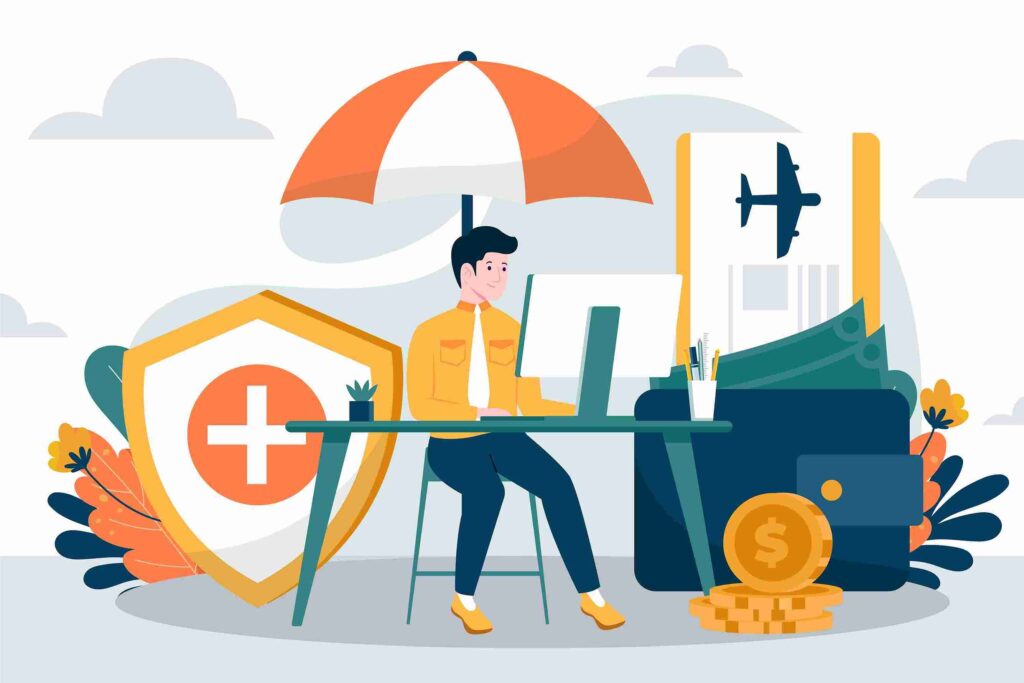Managing your money effectively is an important life skill that can lead to financial stability and peace of mind. In this guide, we’ll explore valuable personal finance tips that can help you take control of your financial wellbeing. Whether you’re just starting your financial journey or looking to optimize your current strategy, these insights will guide you for a more secure financial future.
Basics of Personal Finance

Before diving into specific tips, it’s important to understand the fundamental concepts of your finance. They are :
Income: The money you earn.
Expenses: The costs you spend for living and lifestyle.
Savings: The portion of income you save for future use.
Investments: Ways to grow your money over time.
Debt: Money you owe to others.
Keeping these basics in mind, let’s look into some key personal finance tips to improve your financial health.
Create and Stick to a Budget

One of the most crucial personal finance tips is to develop and maintain a budget. A budget helps you understand your income and expenses, allowing you to make informed financial decisions.
Steps to create an effective budget:
- Track your income and expenses for a month
- Categorize your spending (e.g., housing, food, transportation)
- Set realistic spending limits for each category
- Review and adjust your budget regularly
Remember, a budget is a living document. As your financial situation changes, your budget should evolve too.
Build an Emergency Fund

Life is unpredictable, and having an emergency fund is one of the most important personal finance tips you can follow. Aim to save 3-6 months’ worth of living expenses in a readily accessible account.
Benefits of an emergency fund:
- Provides financial security during unexpected events
- Reduces reliance on high-interest credit cards or loans
- Offers peace of mind and reduces financial stress
Start small if necessary, but make consistent contributions to build your safety net over time.
Pay Off High-Interest Debt

Tackling high-interest debt is a critical step in improving your financial health. Focus on paying off credit card balances and personal loans with high interest rates first.
Strategies for debt repayment:
- Debt avalanche: Pay off the highest interest debt first
- Debt snowball: Pay off the smallest balances first for psychological wins
- Consider consolidation or balance transfer options for better terms
Remember, while paying off debt, continue making minimum payments on all accounts to avoid penalties.
Invest for the Future

Investing is a key component of long-term financial growth. While it involves some risk, historically, well-diversified investments have outperformed savings accounts over extended periods.
Investment options to consider:
- Employer-sponsored retirement plans (e.g., 401(k))
- Individual Retirement Accounts (IRAs)
- Low-cost index funds or ETFs
- Real estate
Start investing early and regularly, even with small amounts, to take advantage of compound interest.
Improve Your Financial Literacy

Continuously educating yourself about finance is one of the most valuable tips for long-term success. Stay informed about financial concepts, market trends, and money management strategies.
Ways to boost your financial knowledge:
- Read finance related books and reputable online resources
- Attend financial workshops or webinars
- Follow financial experts on social media
- Consider working with a financial advisor for personalized guidance
The more you understand about managing your money, the better equipped you’ll be to make sound financial decisions.
Live Below Your Means
One of the most powerful personal finance tips is to adopt a lifestyle that allows you to live below your means. This doesn’t mean depriving yourself, but rather making conscious choices about your spending.
Benefits of living below your means:
- Increases your ability to save and invest
- Reduces financial stress and debt
- Provides flexibility to pursue opportunities or handle unexpected expenses
Focus on needs versus wants, and find ways to enjoy life without overspending.
Protect Your Financial Future

While often overlooked, insurance is a crucial aspect of personal finance. Adequate coverage can protect you from financial devastation in case of unforeseen events.
Types of insurance to consider:
- Health insurance
- Life insurance
- Disability insurance
- Property insurance
- Liability insurance
Regularly review your insurance needs and coverage to ensure you’re adequately protected as your life circumstances change.
Plan for Major Life Events

Incorporating planning for significant life events into your money managing strategy is essential. These events can have substantial financial implications and require careful consideration.
Life events to plan for:
- Higher education (for yourself or children)
- Buying a home
- Getting married
- Starting a family
- Retirement
Start planning and saving for these events early to reduce financial stress when they occur.
Maximize Your Income Potential
While many personal finance tips focus on managing expenses, increasing your income can significantly impact your financial health. Look for ways to boost your earning potential.
Strategies to increase income:
- Develop new skills to enhance your career prospects
- Negotiate for raises or promotions
- Consider starting a side hustle or freelance work
- Explore passive income opportunities (e.g., rental properties, dividends)
Remember, earning more doesn’t automatically improve your finances if you increase spending significantly. You should use your increased income wisely to accelerate your financial goals.
Regularly Review and Adjust Your Financial Plan
Finally, one of the most crucial personal finance tips is to regularly assess and adjust your financial strategy. Your needs, goals, and circumstances will change over time, and your financial plan should evolve accordingly.
Set aside time annually to:
- Review your budget and spending patterns
- Assess progress towards financial goals
- Rebalance investment portfolios
- Update insurance coverage
- Adjust savings strategies
By staying active and adaptable, you can ensure your financial plan remains aligned with your life goals and circumstances.
FAQs on Personal Finance Tips
How much should I save each month?
You know, there’s no one-size-fits-all answer here. It really depends on your situation and goals. Some folks say aim for 20% of your income, but honestly, even saving 5% is a great start if you’re new to this. The key is to just get started and build the habit.
Is it better to pay off debt or invest?
If you’ve got high-interest credit card debt, then tackle that first. It’s like getting a guaranteed return on your money. But if we’re talking about low-interest debt like a mortgage, you might be better off investing while making minimum payments. It’s all about balance.
How can I start investing with little money?
There are tons of ways to get started. You could try micro-investing apps, put a bit into index funds each month, or even start with your company’s 401(k) if they offer one. The important thing is to just begin, even if it’s just $10 a month.
What’s the best way to improve my credit score?
First things first, always pay your bills on time. That’s huge. Then, try to chip away at any credit card balances you’ve got. Oh, and resist the temptation to open new credit cards just because they’re offering a free t-shirt or whatever. Your credit score will thank you later.
How do I create a realistic budget?
Start simple. Just track everything you spend for a month – and I mean everything, even that coffee you grab on the way to work. Then group your expenses into categories. Be honest with yourself about where your money’s going. From there, you can set some limits that actually make sense for your life.
When should I start saving for retirement?
Yesterday! Just kidding, but seriously, the sooner the better. Even if you can only put away a little bit right now, that money has time to grow. Don’t beat yourself up if you’re starting later though. The best time to plant a tree was 20 years ago, the second best time is now, right?
